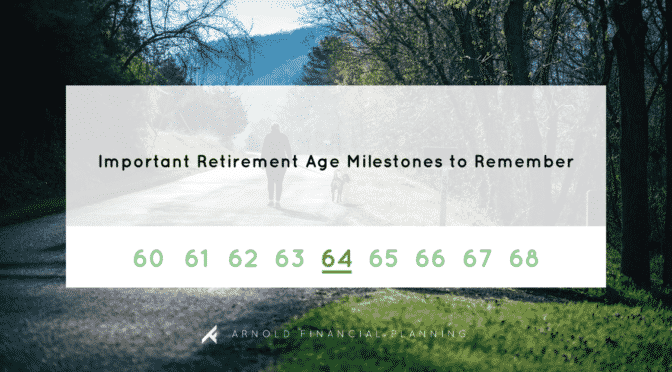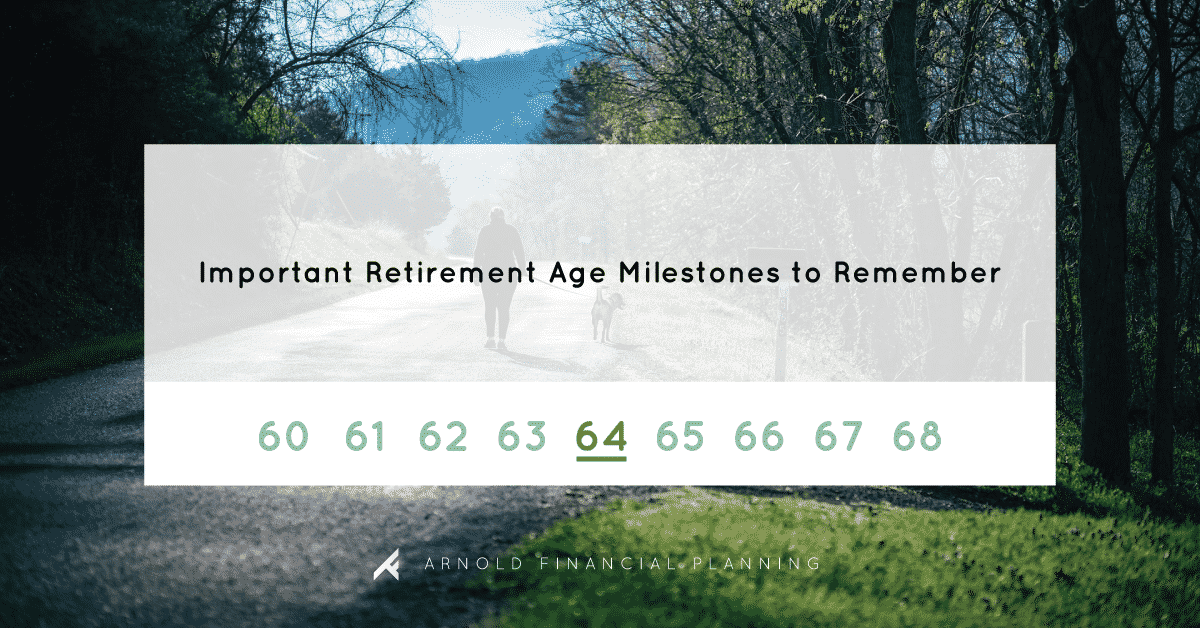Let's Get Started
You'll get the most value from financial planning if your specific goals and needs match a firm's philosophy and services. Let's learn more about each other.
Ready to Get Started?


This is not a standard list of ages at which you should take specific actions to have a good retirement. You can find that sort of generic list elsewhere on the internet. Your situation is unique, the retirement landscape is complex, and having a list of ages to “do something to secure your financial future” is not the right way to think of how you’ll spend time on such an important activity like retirement planning.
Instead, I want to offer an alternative way: if you are impacted by one of these scenarios below, consider the age milestones associated with that scenario. That will be more specific to your situation and goals, and you’ll have a better outcome for your time spent planning your retirement!
Who this is for: You’ve worked hard, you’re tired of your job, and you want to move on to something, anything else as quickly as you can. You’ve been a decent saver and have resources available to retire.
Age milestones to watch out for:
Age 50—You can start “catch-up” contributions to your 401(k) ($6,000 more per year) or IRA ($1,000 more per year). If you want to stop working, you better be saving as much as you can, and this is a good option to sock away more in a tax-advantaged way.
Age 59 ½—This is the first time you can start withdrawing from your 401(k) or IRA without the normal 10% tax penalty. You will have to pay income taxes on the amounts you withdraw from your retirement accounts, but if you need to start living on your retirement savings, this is a good time to consider doing so.
Age 65—First able to enroll in Medicare. If the cost of health insurance was one thing keeping you in your job, this is a great time to consider kicking that job to the curb, since you’re joining the ranks of those covered by Medicare.
Who this is for: You have decent medical coverage at work, and the thought of losing that makes you nervous about retirement. Like Scenario #1, you’ve been a good saver and have resources available to retire.
Age milestones to watch out for:
Age 62—This is the first age at which you can claim Social Security benefits. Be forewarned that depending on your birth year, if you claim benefits now you could be cutting your monthly payment by as much as 30% compared to Full Retirement Age (around 66/67). That’s because you’ll be claiming benefits for a longer period. I’d argue that if you’re concerned about your health and longevity, it may be better in terms of your total SS benefit to claim it early.
Age 65—First able to enroll in Medicare. If the cost of health insurance was one thing keeping you in your job, this is a great time to consider kicking that job to the curb, since you’re joining the ranks of those covered by Medicare. Remember to also shop for a Medigap plan, since basic Medicare is often not sufficient for those of us with health conditions.
Who this is for: You have plenty of savings in qualified retirement plans or in investment accounts or your home equity (maybe well over $2M in total). You don’t have a lavish lifestyle, but you’re not struggling to make ends meet, and you can live off your savings comfortably.
Age milestones to watch out for:
Ages 60-70—You should be considering “Roth conversions”. If you do retire early and are in a lower tax bracket, taking some of your considerable savings in a 401(k) or IRA, paying the taxes to convert, and socking it into a Roth IRA account is a great way to tax diversify (and reduce your eventual need to take funds out of the 401(k) or IRA because of RMDs). Just remember to consider your tax bracket now, and when you turn 72.
Age 70—This is as old as you can go with claiming Social Security benefits. Because you waited, you are credited with a larger monthly payment for each year of delay, so you could get as much as 24% more by waiting. Note that statistically speaking, waiting on Social Security really only pays off if you live longer than the average person in your cohort, due to how the system calculates payments. But, if you do expect a long life, and don’t need Social Security because you have other resources, delay away!
Age 72—You’ll be starting Required Minimum Distributions (RMDs) from your 401(k) or IRA. This shouldn’t really impact your retirement start date, but it is something to keep in mind if you’re charitably inclined—doing an RMD with a charitable contribution makes a lot of tax sense.
Do you need to figure out if you’re even ready to retire, emotionally and financially? Check out my other post, Are You Ready to Retire? Or get help from us directly – contact us now!